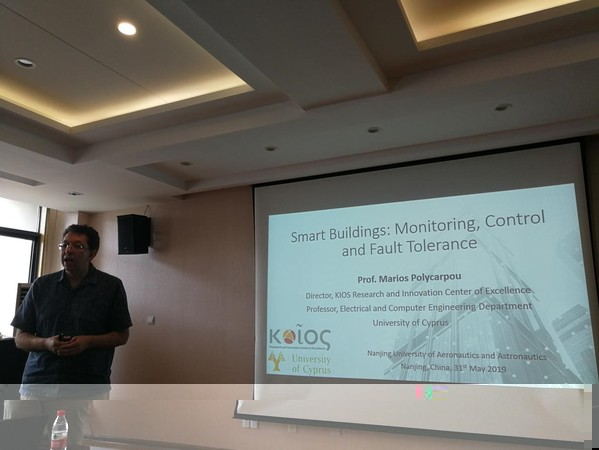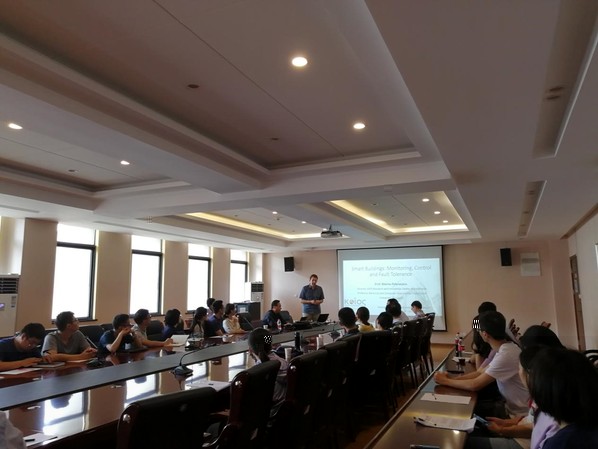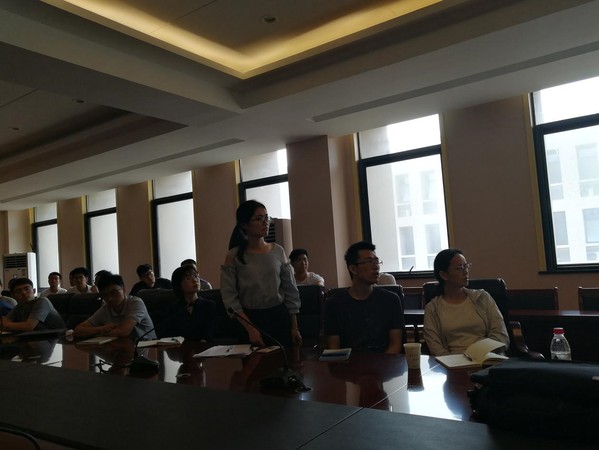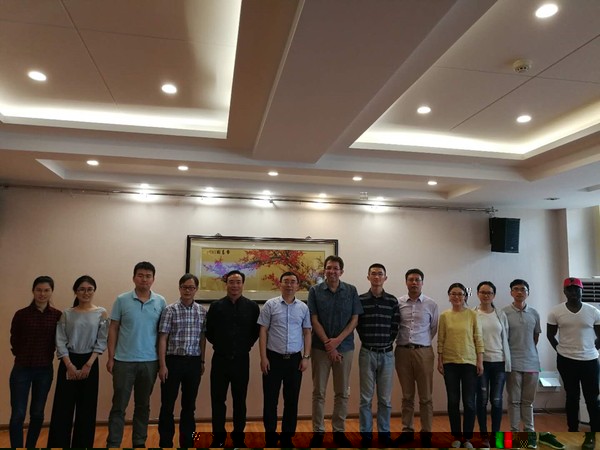2019年05月31日下午,塞浦路斯大學Mrios M. Polycarpou教授應邀在将軍路校區伟德 官网1号樓403會議室做題為“Smart Buildings: Monitoring, Control and Fault Tolerance”的學術報告。報告由南京航空航天大學副校長兼伟德 官网院長姜斌教授主持,伟德 官网部分師生參加了報告會。

Polycarpou教授此次報告的主要内容包括:智能建築的主要構架和發展現狀,智能建築的供暖、通風和空調系統的監測、控制和容錯,以及幾種估計、學習和反饋算法的介紹。

Polycarpou教授指出,智能建築可以視為一種信息物理系統,可以通過相應的控制以提高能源利用率,增強舒适性、生産力和安全性,提升系統魯棒性和可靠性。

而後,Polycarpou教授講解了智能建築中的容錯控制相關問題。在智能建築系統中,可能發生的故障主要有:空氣質量檢測系統中的空氣質量差、有毒氣體洩漏,供暖、通風及空調系統中的執行器和傳感器故障,以及供能系統中的執行器和傳感器故障。智能建築系統可以建模為多個非線性子系統相耦合的互聯系統,系統中的故障可以通過分布式故障診斷與隔離策略來處理。
最後,Polycarpou教授與到場的師生進行了交流互動,耐心解答了師生們所提出的學術問題并與到會師生代表合影。

附報告人簡介:
Marios Polycarpou is a Professor of Electrical and Computer Engineering and the Director of the KIOS Research Center for Intelligent Systems and Networks at the University of Cyprus. He received undergraduate degrees in Computer Science and in Electrical Engineering, both from Rice University, USA in 1987, and the M.S. and Ph.D. degrees in Electrical Engineering from the University of Southern California, in 1989 and 1992 respectively. His teaching and research interests are in intelligent systems and networks, adaptive and cooperative control systems, computational intelligence, fault diagnosis and distributed agents. Dr. Polycarpou has published more than 350 articles in refereed journals, edited books and refereed conference proceedings, and co-authored 7 books. He is also the holder of 6 patents.
Prof. Polycarpou is the recipient of the 2016 IEEE Neural Networks Pioneer Award. He is a Fellow of IEEE and IFAC, and he received with his co-authors the 2014 Best Paper Award for the journal Building and Environment (Elsevier). Prof Polycarpou served as the President of the IEEE Computational Intelligence Society (2012-2013), and as the Editor-in-Chief of the IEEE Transactions on Neural Networks and Learning Systems (2004-2010). He is currently the President of the European Control Association (EUCA). Prof. Polycarpou has participated in more than 60 research projects/grants, funded by several agencies and industry in Europe and the United States, including the prestigious European Research Council (ERC) Advanced Grant and the EU Teaming project.


